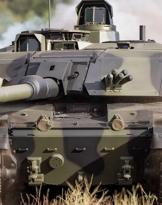The civil war in the Central African Republic, which began in the early months of the 2013, caused the death of approximately 6500 people, a number of about half a million displaced people and the exodus of almost 470.000 of refugees in neighboring countries, which then often became the basis for further long-range migrations.
The 10 April of the 2014, however, the UN Security Council has established, by means of 2149 Resolution, the need to provide humanitarian assistance to civilians, victims of conflict atrocities. A task that is not easy to achieve given that the United Nations resources allocated are not sufficient to cover the costs of an operation of this magnitude: there is talk of about 2 million and a half of people in need of everything: a tragedy of biblical proportions.
Technically and practically the Resolution 2149 sees its aims being realized through the MINUSCA mission (Multidimensional Integrated Stabilization Mission), composed of about 2000 policemen and about 10.000 soldiers from 48 countries around the world.
also the Fuerzas Armadas de la República de Chile (Chilean Armed Forces) in order to contribute to the maintenance of peace and security, they collaborated in a small part to send personnel, through the integration of their own officials as part of the mission contingent.
First phase of three, will see the second take place next year and the last one in the 2018 by sending a special medical unit. The sending of the officials foresees the assignment of an officer of the Army and one of the Fuerza Aérea de Chile in Bangui, plus a third in Kaga Bandoro. The decision of Santiago is part of those projects of Chilean international cooperation that aspire together with the Armed Forces to consolidate its international prestige. Examples of collaboration are not new to the Chileans: the Army has participated in the various UN-led military contingents following the operations UNFICYP, UNMOGIP and UNTSO.
Le Armed forces, traditionally estimated by analysts, they are now considered among the most technologically advanced and professional military apparatus in South America. Supplies from Germany, the Netherlands, Switzerland, the United States, Israel, France and Spain contributed in no small way to a renewed projection capacity, entirely consistent with the Chilean international ambitions.
(photo: Fuerzas Armadas de Chile)












